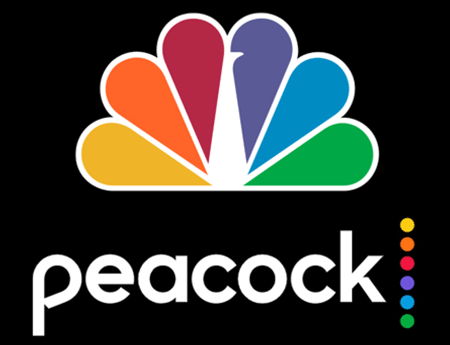Why NBC Universal’s Peacock will be “must-stream TV”
Although Netflix, Apple TV+, and Disney+ have been grabbing headlines, Center director Jeffrey Cole describes how NBCU’s Peacock service from Comcast has identified a strategic opportunity in the streaming wars.
By Jeffrey Cole
Last week Apple TV+ and its high profile The Morning Show (Jennifer Anniston, Reece Witherspoon, and Steve Carell) premiered, not surprisingly, to mixed reviews. Many have been predicting that Apple’s move into streaming would be a rocky one.
 Next week on November 12, the streaming wars will officially begin as Disney unveils its new service, Disney +. This is the one that people have been waiting for ever since August of 2017, when CEO Bob Iger pulled his company’s content off of Netflix and announced it would be starting its own streaming channel.
Next week on November 12, the streaming wars will officially begin as Disney unveils its new service, Disney +. This is the one that people have been waiting for ever since August of 2017, when CEO Bob Iger pulled his company’s content off of Netflix and announced it would be starting its own streaming channel.
Now, more than two years later, Disney is betting the company on a new way of watching content with high-profile shows such as The Mandalorian (a live action Star Wars series), a sequel to High School Musical, a live version of Lady and the Tramp, every Simpsons episode (over 600), and much more.
Consumers will be thrilled, confused, and overwhelmed. Not the least of their problems will be figuring how much more they are willing to spend every month on “television,” and which services are worth paying for.
The “good old days” (2011-2019) of paying $10 for Netflix and getting old and original content from Disney, Warner, Paramount, Universal, Fox (R.I.P.) and Sony are gone. By the end of the next week, that $10 will be about $22, and within a year, to replicate everything we used to get from Netflix will cost $50.
The Center’s work shows people will not increase their monthly entertainment budget by much, if at all, and will only pay for 2.5 of these services at most. Cord cutting, which frees up money to spend elsewhere (or save), seems to be slowing as the many channels of cable all of a sudden seem like a bargain.
The competition among the subscription streamers will be intense.
In this new entertainment universe, one of the biggest players, NBC Universal Comcast (NBCUC), is taking a new and innovative path that will clearly distinguish it from the other players.
No matter how you measure it, NBCUC is a media/entertainment/technology colossus. It is one of three studios that saw warning signs about being too small in the era of Netflix, Apple, Amazon, Google, and Facebook. Like Disney (buying Fox) and AT&T (buying Warner Bros, HBO, Turner, as well as the ill-fated DirecTV), NBCUC bulked up over the past decade as Comcast acquired Universal and NBC, and then later, DreamWorks Animation.
Today, NBCUC is ready to compete. With a market cap over $200 billion (like Disney and AT&T), it is a major player. It has many similar assets to Disney. Both own major motion picture and television production studios (as does AT&T) and television networks (NBC, and Disney has ABC). The two companies are the #1 and #2 in theme parks, and both are heavily invested in cable channels (over the past decade or so both companies have made more money from cable than any other part of the company).
NBCUC’s unique asset is being owned by the biggest cable company in the country as well as the largest provider of broadband service.
When it comes to streaming, NBCUC is taking a very different path that has received little attention but will likely turn out to be a stroke of brilliance. Disney+ has received all the attention and sucked the oxygen out of the streaming discussion. NBCUC is moving in a much more low-key and stealthy fashion, which is reflective of its management style.
___________________________________________________________________________
While nothing has been announced, there are clear signs that NBCUC is strongly considering making Peacock available to everyone for free. While doing this would force the company to overcome the “protect Comcast” culture, it is exactly the right thing to do. If you were to completely scope out the world of media, analyze how it will change under streaming, and then look for the best opening and opportunity, you would follow NBCUC’s path with Peacock.
___________________________________________________________________________
NBCUC’s CEO, Brian Roberts, is the son of Comcast Founder Ralph Roberts. Like his father (now gone) he keeps a low profile (it’s difficult to imagine him writing and promoting his autobiography). Beneath a pleasant exterior is one of the smartest, most agile and aggressive executives in the history of media. He battled Disney for Fox (he lost, but forced Disney to spend $20 billion more than it intended) and then battled Disney again for Sky TV in Europe (he won).
Robert’s unprepossessing manner is shared by most of NBCUC’s senior management: highly skilled, excellent managers, and shy of too much personal attention. It’s a style that works well for them.
All this is reflected in their streaming strategy.
NBCUC has borrowed from its heritage and is calling its streaming service, set to premiere in April, Peacock. Unlike the other studios’ and Apple’s channels, Peacock will be advertiser supported (although there may be an ad-free version for a fee). It will be free to Comcast subscribers. Its content will draw from the massive NBC and Universal libraries of film and television, and it will include The Office, Saturday Night Live, Cheers, and tens of thousands of additional hours of programming.
There are three important things to learn from NBCUC’s plans for Peacock:
1. Differentiation
An ad-supported streaming channel is exactly the way to separate Peacock from the competition at exactly the right time.
Consumers will soon be tired of having to pay $5 (Apple) to $18 (HBO Max) monthly for additional services. We think this will begin a process where they subscribe to Netflix, and then–after a few months, when they have seen much of that service’s programming–leave to move to Hulu or HBO Max. Then they will come back. Movement from channel to channel will be the constant. All this to stay at about 2.5 services and keep costs down.
Peacock avoids this game of musical chairs entirely. There is no subscribing and unsubscribing since there are no monthly fees. Peacock gets the chance to build real customer loyalty. Consumers say they hate advertising, but when they understand that it eliminates programming charges (the history of broadcast television) they are far more accepting. What they really hate is content being edited. Looking at NBCUC’s library of content, editing should not be a problem.
In the digital world of streaming, we may see a completely different form of advertising. Peacock says their ad load will be lighter than what we are used to, but it will also be possible to create different types of ads integrated into programming. Targeted advertising with much higher costs (and effectiveness) for advertisers may finally achieve the potential that has been discussed for years. This alone may make Peacock a major player in streaming.
2. Access without stress
Peacock’s business plan may already be validated. No household is excited at the prospect of seeing their streaming budget double or triple. Some fear that even if they completely cut the cord (still difficult for many) they will just end up paying the same monthly charges for fewer channels.
We all know there is a limit to how many monthly subscriptions we will maintain, we just don’t know yet how many and which ones. It will be a fierce competition for the streaming part of the consumer’s wallet. Once again, this separates Peacock from the competition.
There are already signs that the bigger subscription services see this danger over the next year. While Apple is priced the lowest at $4.99, it still will be hard to get that additional money per month from television viewers. That is one of the reasons they are offering Apple TV+ for free for a year to anyone who buys an Apple hardware product. That’s a very big audience. Considering that many buy an Apple product every two years (or even every year), all of a sudden Apple TV+ has exempted itself from the cost per month calculation for tens of millions of people.
Disney+ has done the same thing by making Disney+ free for a year for anyone who has a Verizon unlimited data plan. This will add 60 million customers who will not have to factor Disney+ into their monthly budget. It will make more people buy Verizon unlimited plans (of course, which is why Verizon cut the deal), and it’s likely that the subscription will ultimately last for the life of the plan, not just one year.
Apple and Disney, realizing the intense competition for the consumer’s dollar, have just added millions of customers without affecting their monthly costs. This is the whole point of NBCUC’s Peacock. The only other service immune to price calculation is Amazon whose Prime Video customers don’t think they are paying for streaming since they buy Prime for shipping.
3. Peacock can’t be tied to Comcast
The one flaw in Peacock is that, as announced, it is only available for free to Comcast subscribers. This is not surprising since Comcast is the parent company of NBCU and wants to ensure that in a world of cord cutting and the emergence of 5G, which many call a “cable killer,” there is a future for cable.
While understandable, this is a big mistake. Peacock needs all cable subscribers as well as anyone who can watch television (sets, tablets, phones) to get the service. That gives them potentially 300 million viewers.
More importantly, the desire to prop up cable cannot be a drag on the rest of NBCUC. Cord cutting is real. Comcast’s base is shrinking, not growing. The future of cable-based broadband will be subject to the pricing and quality of the new competition. Comcast will have to bite the bullet, not use the rest of the company to become dependent on cable and compete on price and speed.
Protecting Comcast cannot hold back the rest of the company. (AT&T also needs to learn this lesson, as does Verizon if it enters the content field.) Comcast must rise or fall on its own based on what it offers and how competitive it is.
There are hopeful indications that NBCUC already understands this.
While nothing has been announced, there are clear signs that NBCUC is strongly considering making Peacock available to everyone for free. While doing this would force the company to overcome the “protect Comcast” culture, it is exactly the right thing to do.
As other streamers have to fight for wallets, forcing the consumer to figure out which channel they want, and probably move from service to service, Peacock can sit above the rest. Everyone is a customer. There is no decision viewers have to make about whether or not to stay with Peacock.
And a potential audience of the whole country, with higher-yield advertising, will also fund better programming and eventually high-quality original programming. All roads lead to this.
Very little attention has been focused on Peacock. There has been a lot of criticism of the name, which is surprising considering that Disney and Apple each just added a plus-sign to their names and HBO added Max.
If you were to completely scope out the world of media, analyze how it will change under streaming, and then look for the best opening and opportunity, you would follow NBCUC’s path with Peacock.
____________

Jeffrey Cole is the founder and director of The Center for the Digital Future at USC Annenberg.
See all columns from the center.
November 6, 2019

